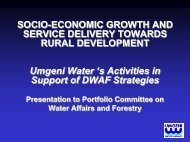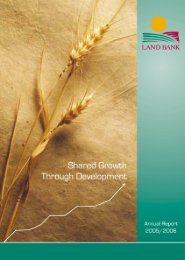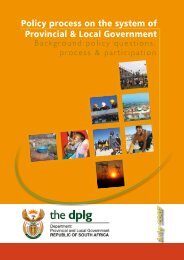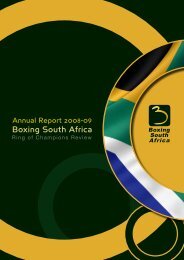3. PPECB Annual Report 2009-2010
3. PPECB Annual Report 2009-2010
3. PPECB Annual Report 2009-2010
Create successful ePaper yourself
Turn your PDF publications into a flip-book with our unique Google optimized e-Paper software.
can analyse up to 200 samples per day. The laboratory hasalso continued to focus on expanding into dried fruit, treenuts, spices and consumer food product market segments,generating income from mycotoxin analyses of these matrices.Expanding into a fats analytical programme, the laboratoryhas seen an increased demand for analyses of foodcommodities for fat content (trans fats, unsaturated vs.saturated fatty acids) and rancidity.CertificationsThe certifications unit showed positive client growth despitethe economic down turn. This correlated well with a continuedimprovement in turnaround times, service delivery and thenational accessibility of our service countrywide. AlthoughHACCP certifications have showed a distinct upturn,GlobalGAP certifications remained the major income generatorfor the unit in the period under review. The greatly anticipatedpublication of the Consumer Protection Act has sparkedrenewed vigour and demand in the certification space whichprompted management to track developments and impactson the industry closely throughout the review period. Duringthe reporting period, the certifications unit added ISO 22000to its service offering which further includes GlobalGAP;BRC; HACCP; LEAF; 360 Quality; Tesco Nurture and RetailSupplier audits.Cold Chain R&DEmanating from its approved 3 year strategy, the R&Dprogramme has identified and commissioned various appliedresearch projects during the period under review: Conductingsuccessive research trials to review and update the currentpost harvest recommendations within the Cold Chain, forall major perishable products destined for export. 2 Furtherco-funded projects to record the “Post-harvest Biology andTechnology of Leucadendron and Leucospermum under ColdStorage” and the “Development of Post-harvest and ShippingProtocols for South African Pomegranate – An emergingExport Crop” have already produced initial results in thereporting period. A further project will look into investigatingthe non-destructive monitoring and prediction of rind qualityin citrus fruit in an attempt to use alternative post harvestmethodologies.Training and DevelopmentThe delivery of training services were limited during thereview period mainly due to the ramp up phase associatedwith properly constructed outcomes based training materialthat attracted the focus of many subject matter experts at<strong>PPECB</strong>. In addition, training was also limited to needscontained in partnership agreements where predeterminedskills transfer programmes were driving delivery. Once a fullyconstituted training services menu has been finalised, theservices will become available to the broader spectrum ofthe market.Our development efforts with small scale farmers hasproduced a further 9 farmers certified to globally recognisedgood agricultural practices. Furthermore, a total of8 small scale farmers received good agricultural practicepre-audits to determine their compliance GAPS. These farmerswill be further assisted to close out all findings to becomecompliant.<strong>PPECB</strong> | annual report | <strong>2009</strong> - <strong>2010</strong> 53




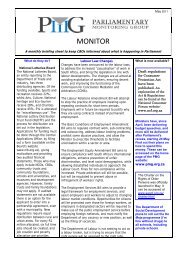
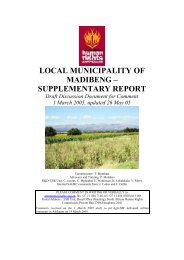
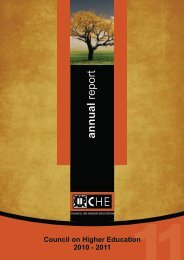
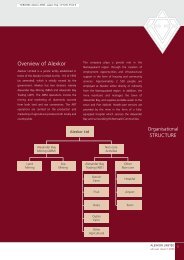
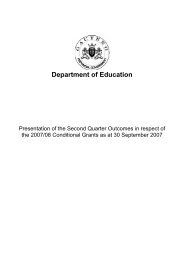
![National Research Foundation Annual Report 2008 / 2009 [Part 2]](https://img.yumpu.com/49774036/1/177x260/national-research-foundation-annual-report-2008-2009-part-2.jpg?quality=85)
